

3:30 am IST - 5:30 am IST
Past Event
Content from the Brookings Institution India Center is now archived. After seven years of an impactful partnership, as of September 11, 2020, Brookings India is now the Centre for Social and Economic Progress, an independent public policy institution based in India.
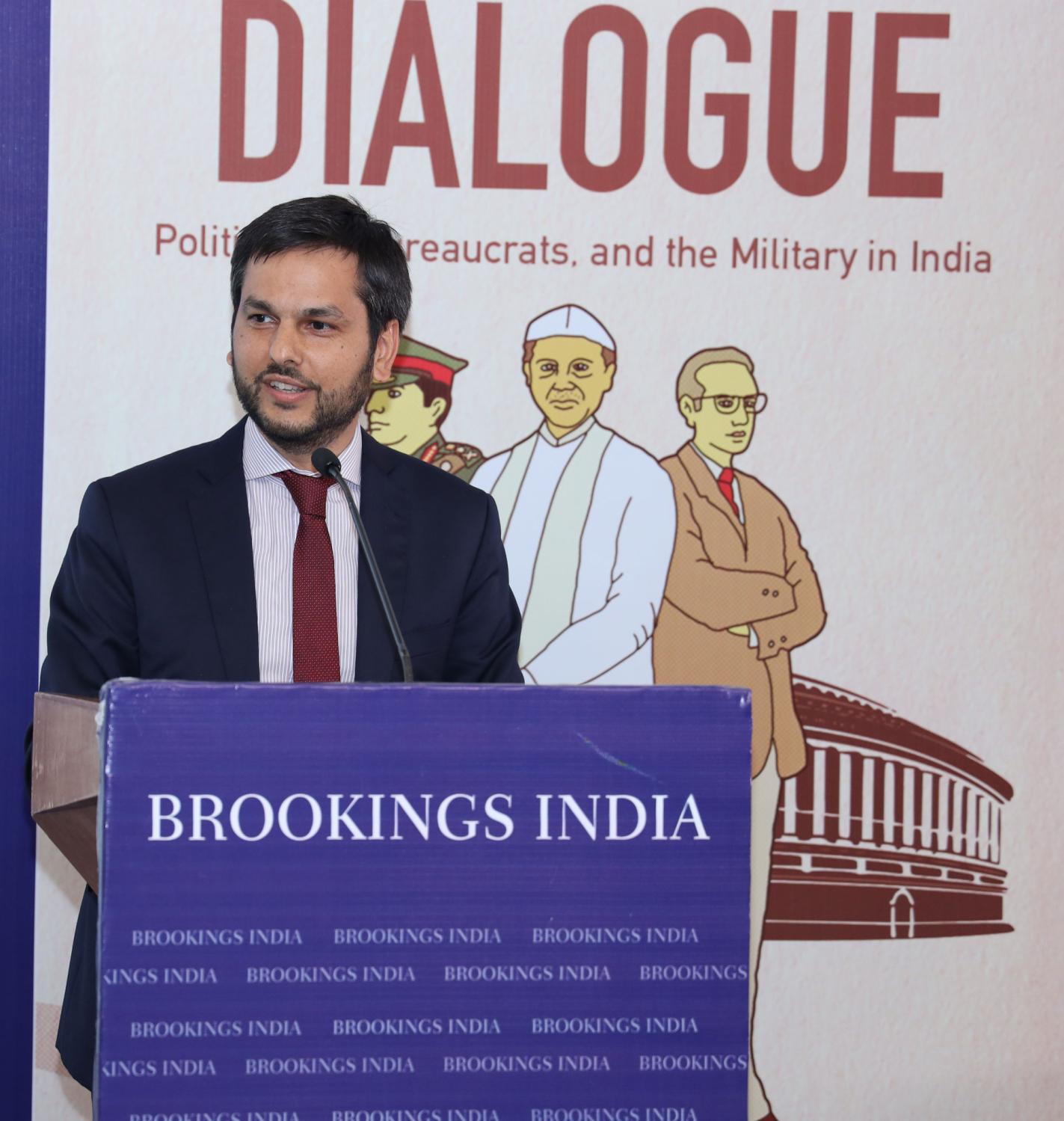
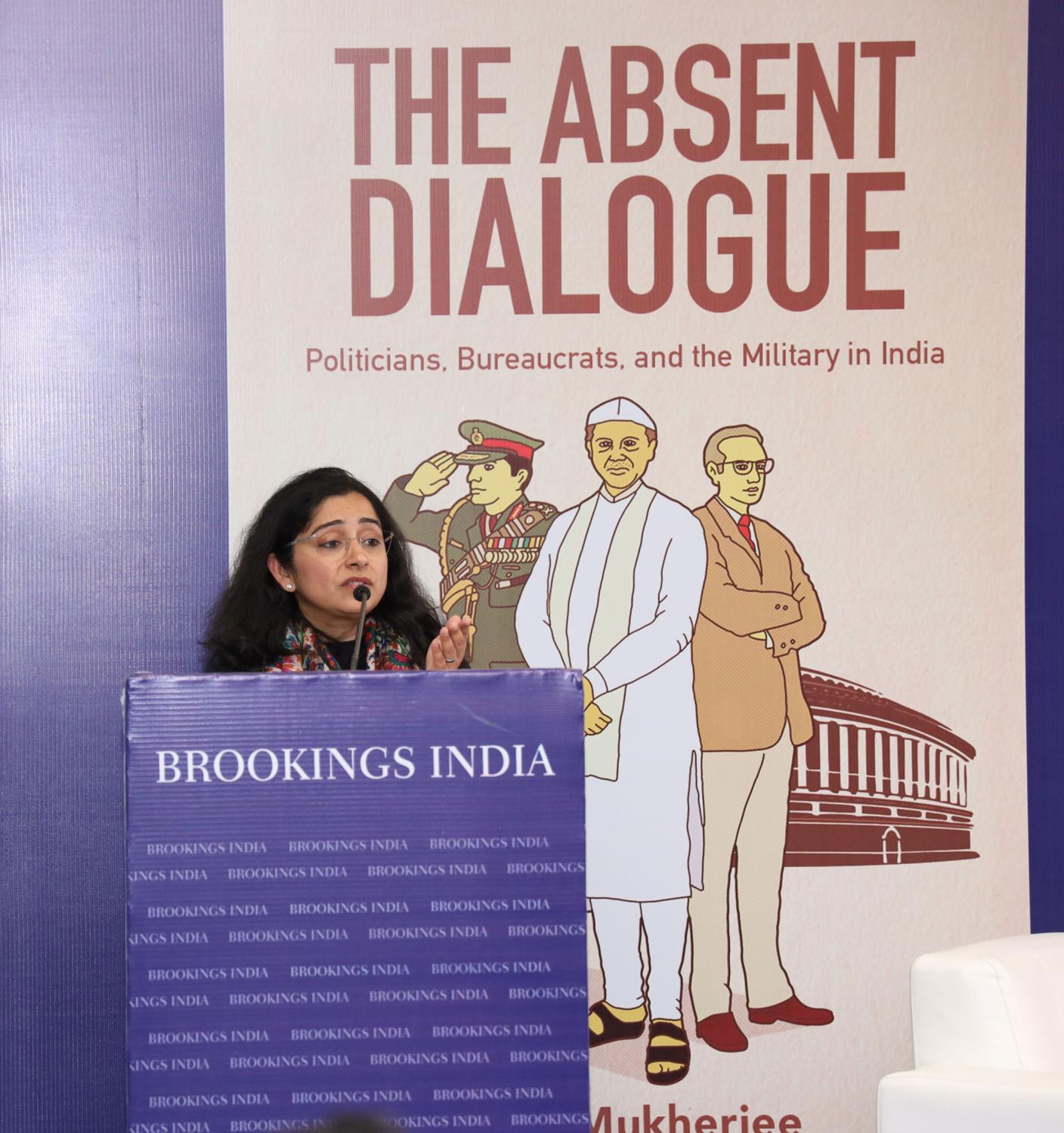
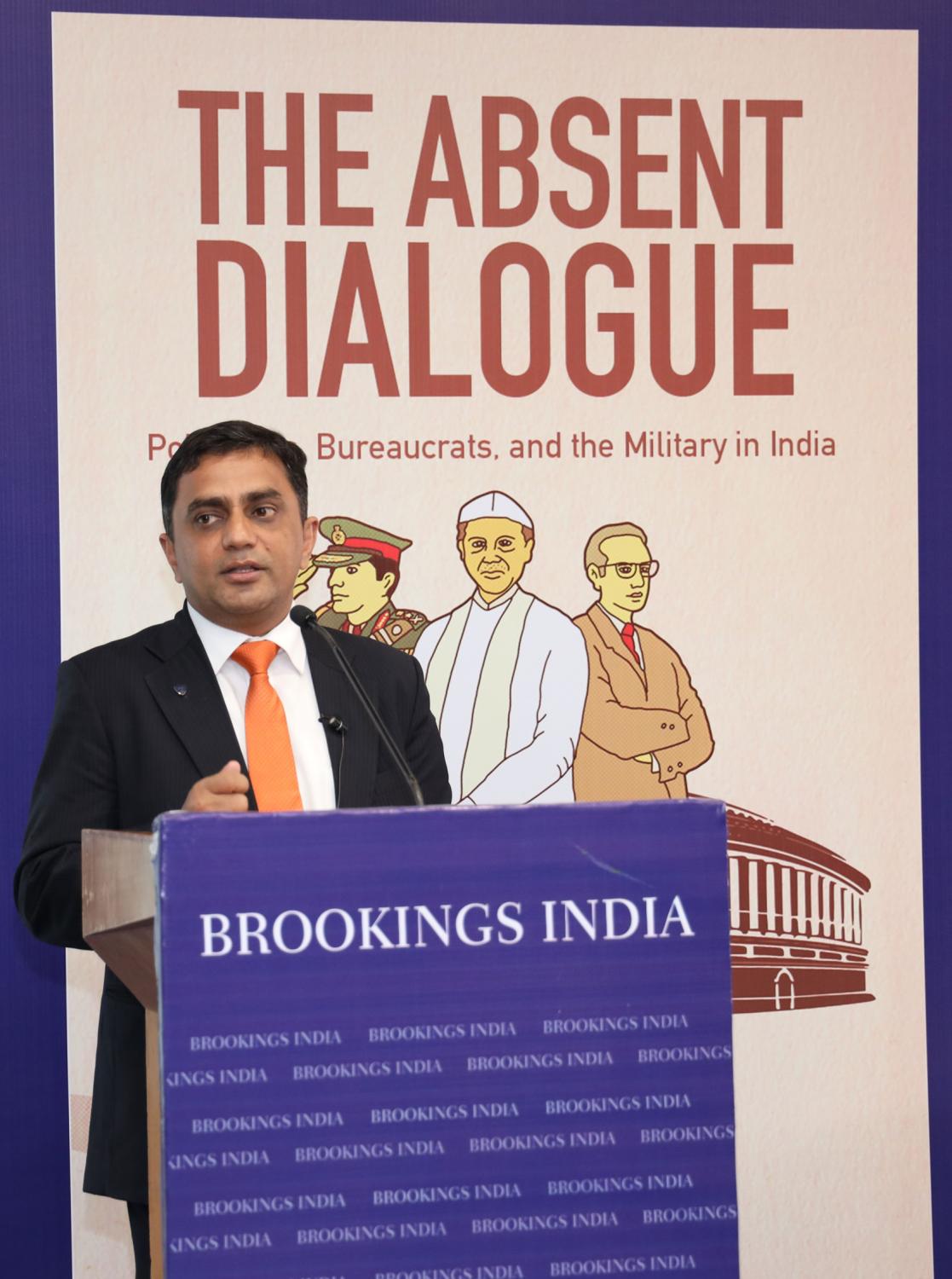
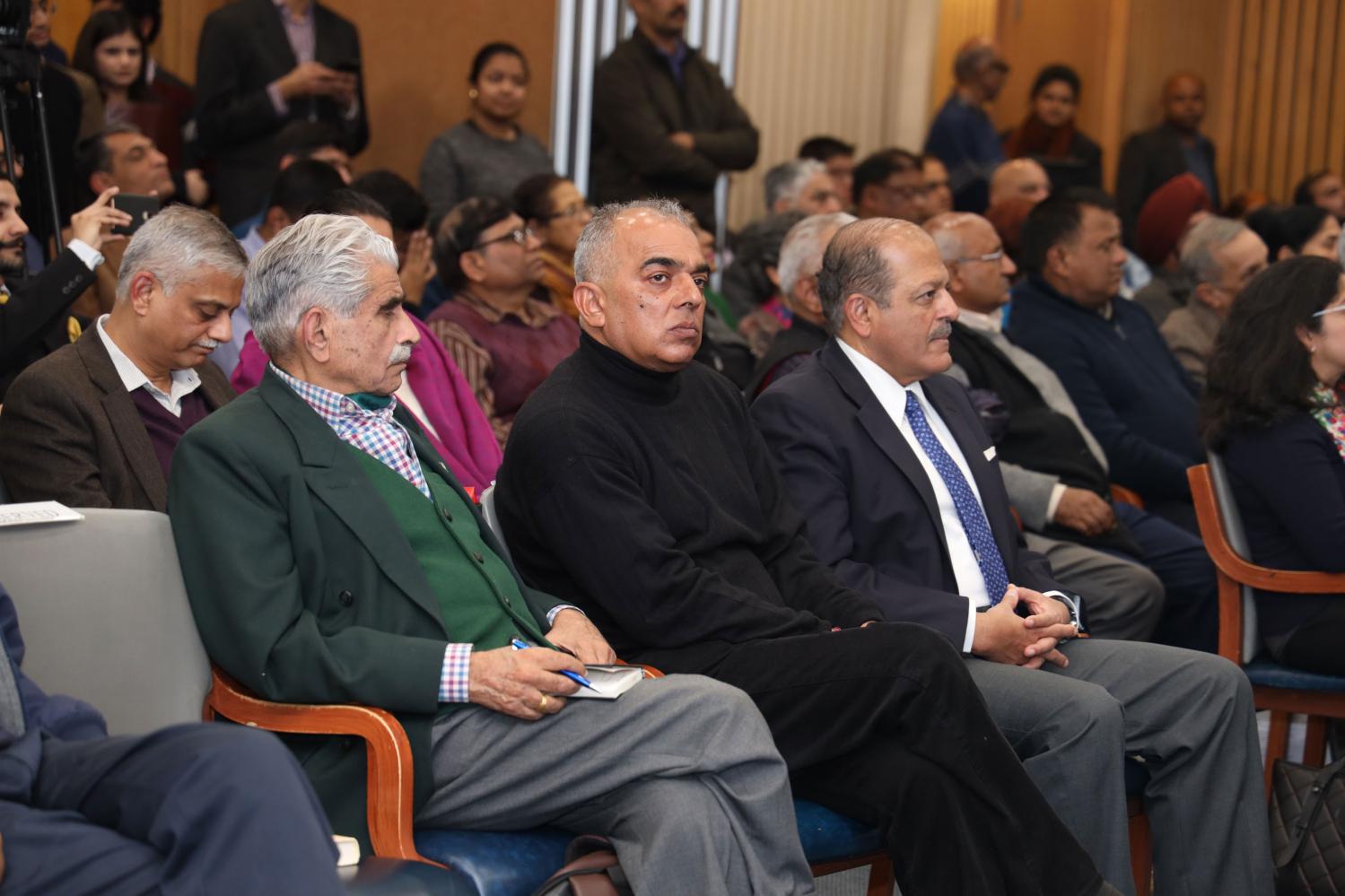
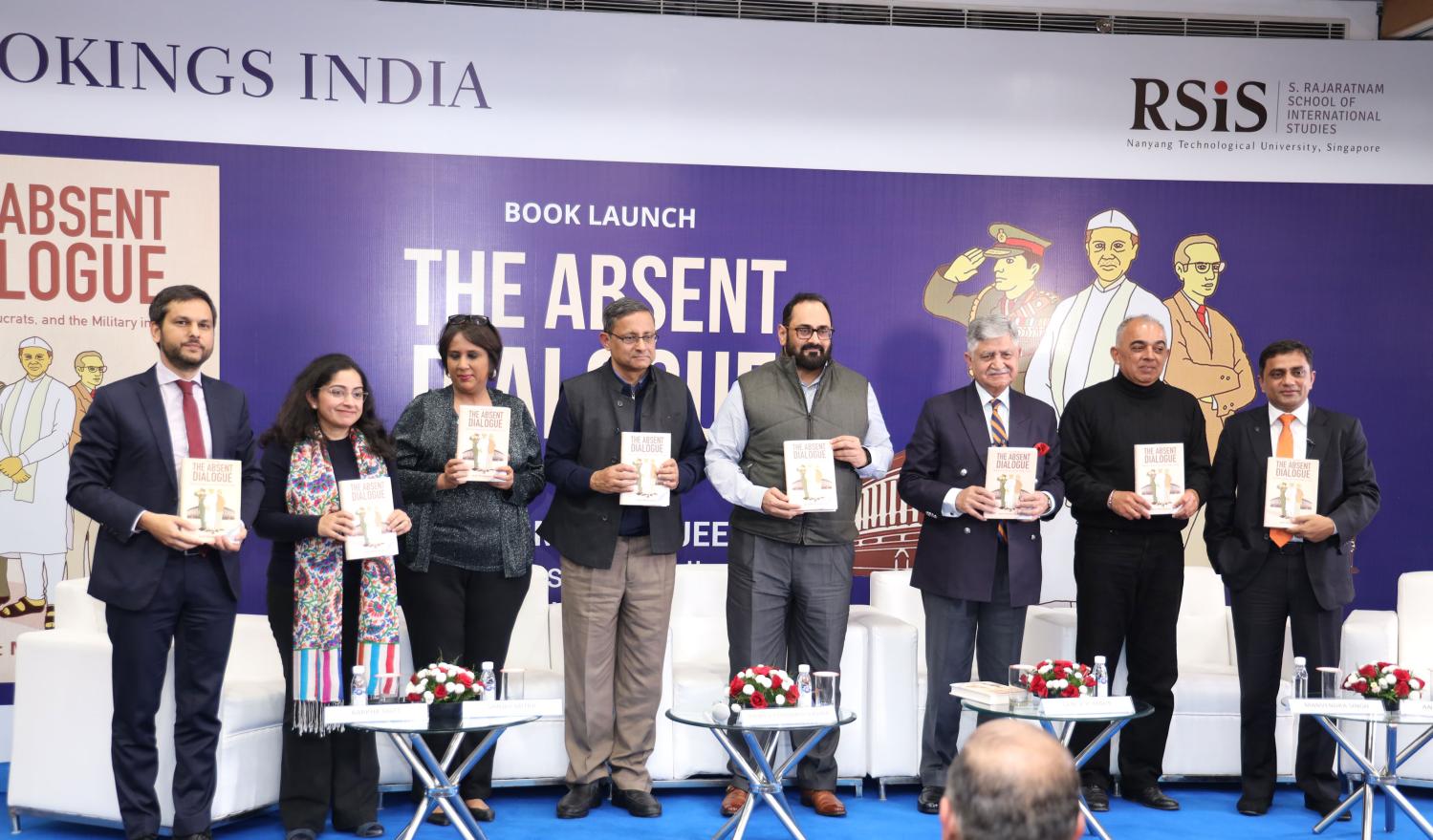
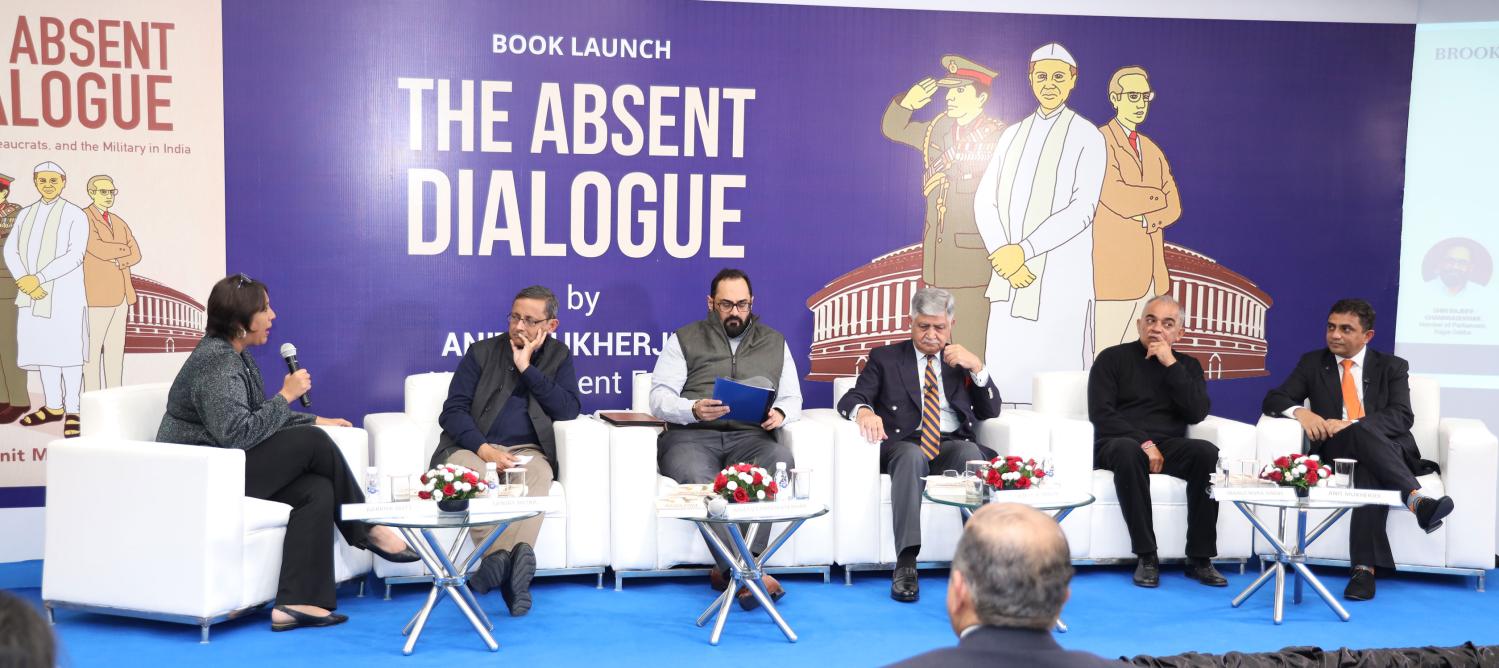
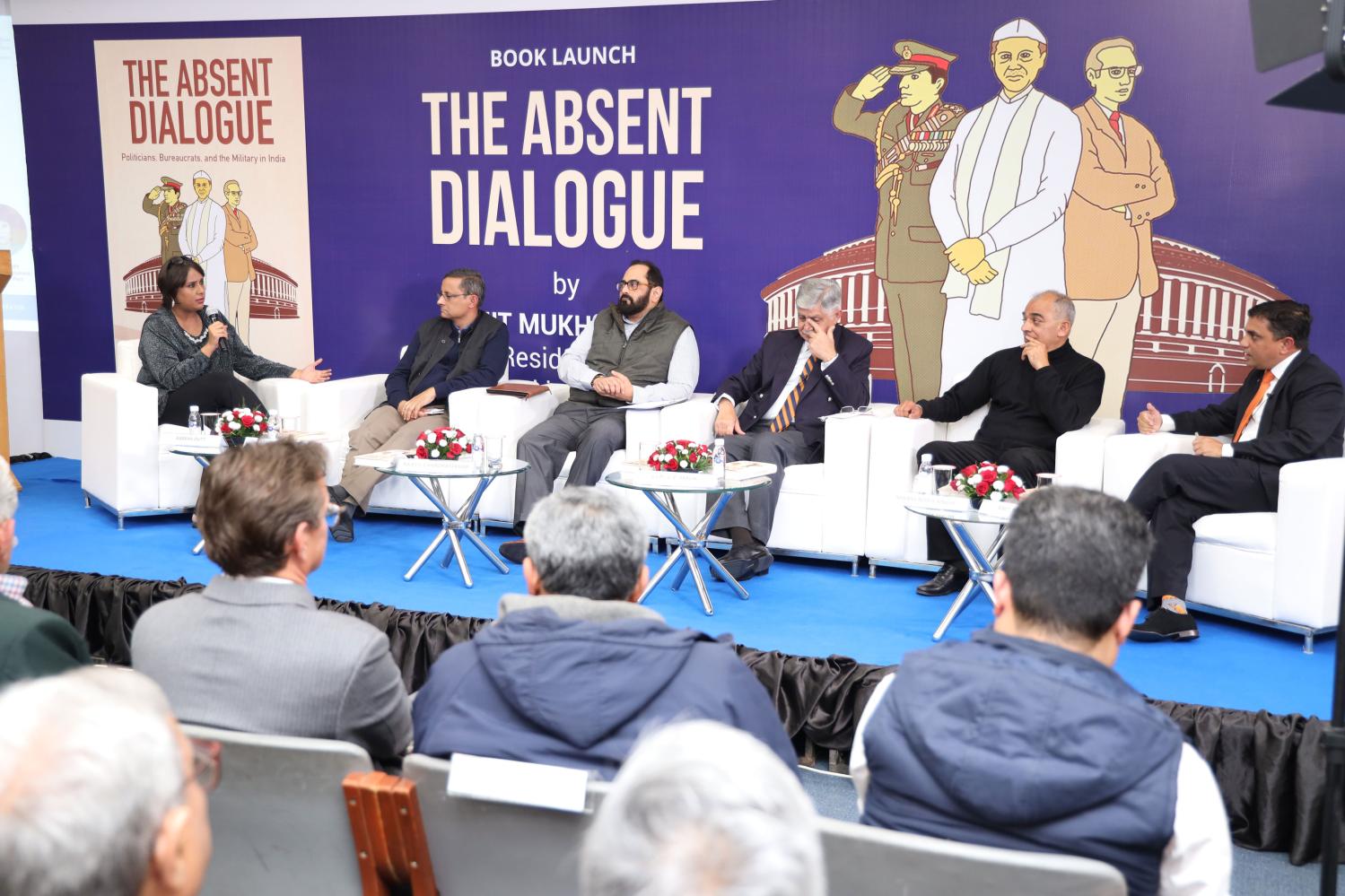
Understanding the Absent Dialogue
In his opening presentation, Mukherjee gave an overview of the study of civil-military relations, arguing that it could be imagined at two different levels. First-order issue is to obtain civilian control over the military, which is among the most basic characteristics of a democracy. On this count, he argued that India has much to be proud of, as the military has never threated civilian control. However, in mature democracies, defined as those where civilian control is not in question, the focus of civil-military relations usually shifts to second-order issues—relating to matters pertaining to effectiveness and efficiency. On that count, he argued that India’s model of civil-military relations has an adverse impact on its military effectiveness. A key cause for issues is the absence of a dialogue between the three actors around defence policy – politicians, bureaucracy and the military itself. While making this argument, Mukherjee’s book examines five variables most closely associated with military effectiveness—weapons procurement, jointness, officer promotion policies, professional military education and defence planning.
Missing elements in understanding defence institutions
Key themes that recurred over the course of the panel discussion were the causes for the perceived “lack of trust,” and the causes for a lack of knowledge-building and education in stakeholders. Mukherjee pointed out some of the issues that strategic studies in India currently face, such as the slow pace at which the military declassifies documents, which makes it difficult for students and academics to study and understand defence policy. Chandrasekhar argued that “it is a reasonable expectation [for the public] to have…that the minister or the political leader that is eloquent about a subject knows about it, and is not only prone to advice that is given to him by people who in many cases know even less than him on the subject.” Gen. Malik discussed how the civil-military interactions operate differently during war and peace times, operating much more smoothly and effectively in sync during war, but lacking the same in peace-time; thus, further improvements are required to fix these issues.
On the Balakot strike
When talking about the Balakot strike, a number of important points were raised. Mukherjee said that the decision to respond was appropriate, but pointed out the need for tougher questions to be raised about specific details, “these are questions that need to be asked in order to enhance the functioning of the military itself.” Chandrasekhar pointed out that capacity building e.g. for Balakot has been an ongoing process, but there need to be discussions on what capabilities and challenges actually exist. Mitra argued that there were significant discussions preceding Balakot.
CDS and DMA: Reform, or more of the same?
Intense discussion occurred on both the newly created position of Chief of Defence Staff (CDS) and Department of Military Affairs (DMA). Mitra observed that elements of the defence policy structures are personality-driven, and that “the best institutions can be undermined by personality clashes, as we’ve seen in all institutions.” He noted that given the lack of happiness with the old system, the new system should be given its chance. Singh raised concerns about the possibility of the DMA ending up “being another silo” and that the current issue is “to have silos removed, and have people working together.” Gen. Malik expressed concerns about whether the CDS retained the requisite powers needed to be effective, given the challenges of working together particularly with respect to finance. He also argued that there was a need to ensure that both the CDS and the defence secretary help the defence minister rather than allowing the defence secretary to absorb the entire policy process. Mitra responded by pointing out the extensive powers given to the CDS of transfer, promotion and award. Even through their disagreements, the panelists agreed that this was an important topic and an important book, which should be read not only by all members of India’s strategic community but also by the general public at large.

Rahul Tongia, Anurag Sehgal, Puneet Kamboj
2020
Online Only
3:00 am - 4:40 am IST

Saneet Chakradeo
August 18, 2020